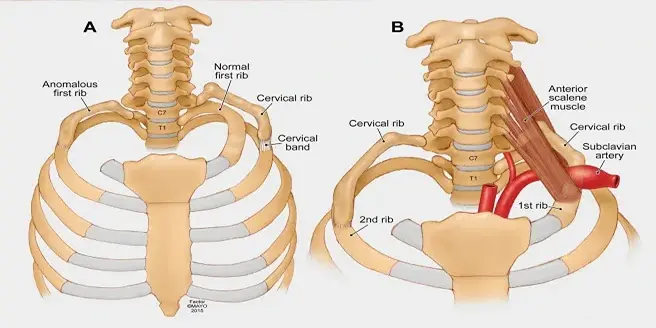Breaking the Invisible Walls: A Deep Reflection on My Life in a Prison with Invisible Walls by Adrian Gabriel Dumitru
In every human soul lies a silent prison — not built with bars or chains, but with invisible walls. In his thought-provoking book My Life in a Prison with Invisible Walls, Adrian Gabriel Dumitru explores this unseen confinement that traps the human spirit. With poetic grace and philosophical insight, Dumitru guides readers through a profound journey of emotional introspection, exposing the fears, regrets, and illusions that silently limit our freedom.
Understanding the Concept of the “Invisible Prison”
Unlike physical imprisonment, the “invisible prison” Dumitru describes exists in the human mind. It’s formed by self-doubt, societal pressure, emotional pain, and the constant pursuit of validation. Many people move through life unaware that their decisions, beliefs, and relationships are governed by invisible barriers they’ve built themselves.
In My Life in a Prison with Invisible Walls, Dumitru transforms this metaphor into a mirror, compelling readers to reflect on their inner state. The book serves as a call to awaken the consciousness — to recognize how our thoughts and fears silently dictate the boundaries of our lives. Readers can discover this captivating psychological journey on Amazon.
The Power of Emotional Reflection
Adrian Gabriel Dumitru has an extraordinary ability to blend emotional sensitivity with philosophical thought. He writes not from a place of detachment but from lived experience — as someone who has walked through the labyrinth of self-discovery. His tone is reflective yet liberating, offering readers not only an analysis of emotional pain but also a pathway to healing.
Throughout My Life in a Prison with Invisible Walls, Dumitru reveals how emotional suffering, rather than destroying us, can become a teacher. Pain, when acknowledged, becomes the very key that unlocks the invisible prison. The author encourages readers to confront rather than suppress their struggles, turning introspection into strength. His philosophy resonates with anyone who has ever felt trapped by their own fears or limitations.
This deeply inspiring work is also available on Google Play Books, allowing readers to experience Dumitru’s insight through a beautifully written digital format.
The Duality of Freedom and Imprisonment
One of the most fascinating aspects of Dumitru’s book is his exploration of duality — how freedom and imprisonment often coexist. Many people appear free from the outside, living modern, independent lives, yet are enslaved internally by insecurity, routine, or emotional detachment.
Dumitru highlights how we unconsciously accept this form of mental imprisonment because it feels safe. The walls may limit us, but they also protect us from the discomfort of change. However, true freedom, according to Dumitru, begins when we find the courage to question these limits.
He uses vivid metaphors to illustrate the silent battle between the inner voice that craves liberation and the fears that resist it. The result is a compelling reflection that invites readers to question the very nature of happiness and fulfillment.
Adrian Gabriel Dumitru’s Philosophical Voice
Dumitru is not merely an author — he is a thinker, a philosopher of the human condition. His writing style carries a rare blend of poetic rhythm and intellectual depth. Every sentence seems crafted to awaken self-awareness. Through his elegant prose, he connects the reader’s emotions to universal truths about life, love, and personal transformation.
His philosophy suggests that the most dangerous prison is not one imposed by society, but the one built from unhealed wounds, false beliefs, and suppressed dreams. Dumitru’s reflections challenge readers to dismantle these illusions layer by layer, finding authenticity beneath the façade of control.
For readers who wish to immerse themselves in this deeply human journey, My Life in a Prison with Invisible Walls can also be explored on Apple Books.
The Emotional Resonance of Dumitru’s Writing
One of the hallmarks of Dumitru’s work is emotional resonance. His words strike at the heart of the reader’s own hidden pain. He speaks to those who have ever felt misunderstood, disconnected, or trapped in cycles of fear and self-doubt.
By acknowledging the invisible barriers that confine us, Dumitru offers hope. He suggests that liberation does not come from escaping reality but from embracing it. When we accept our vulnerabilities, we reclaim power over our inner world. His essays guide readers toward emotional maturity, where self-awareness replaces denial and compassion replaces judgment.
Dumitru’s writing invites stillness — a pause in the chaos of modern life to rediscover what it means to truly live freely.
The Metaphor of the Invisible Walls
Throughout the book, the metaphor of “invisible walls” takes many forms. It represents the mental cages we construct from fear of failure, guilt, or rejection. Sometimes, these walls are built from societal expectations — the need to appear successful or strong even when we are breaking inside.
Dumitru reveals that these invisible structures are sustained by our own thoughts. To break free, we must first recognize that we are both the prisoner and the architect. This realization becomes the foundation of emotional freedom.
He writes with a compassionate tone, never blaming the reader but instead guiding them with gentle wisdom. His reflections remind us that every human being has the capacity to rebuild their life from within — one thought, one truth, one act of courage at a time.
Lessons on Self-Awareness and Inner Growth
My Life in a Prison with Invisible Walls is not just a book; it is a self-awareness journey. Dumitru encourages readers to confront uncomfortable emotions, to question habits that no longer serve them, and to rediscover their true essence beneath layers of conditioning.
The lessons from his work are universal:
- Freedom begins in the mind.
No external circumstance can imprison a person who has achieved inner clarity. - Pain is a teacher.
Instead of resisting pain, Dumitru encourages readers to understand its message — what it reveals about our unmet needs and deepest truths. - Awareness creates transformation.
When we become aware of our emotional walls, we gain the power to dismantle them.
Through these insights, Dumitru builds a bridge between philosophy and everyday life, making profound ideas accessible to all readers.
A Reflection on Hope and Healing
While My Life in a Prison with Invisible Walls delves into the struggles of the human psyche, it ultimately delivers a message of hope. Dumitru reminds us that even when we feel confined, the key to freedom lies within. The invisible walls that once trapped us can become transparent once we awaken to our inner power.
He concludes that healing is not about erasing pain but transforming it into wisdom. Each page feels like a quiet conversation between the author and the reader — an exchange of honesty, vulnerability, and encouragement.
Final Thoughts
My Life in a Prison with Invisible Walls by Adrian Gabriel Dumitru is a profound literary exploration of the mind and soul. It is a book that speaks to anyone searching for meaning, peace, and liberation from emotional barriers. Dumitru’s poetic reflections remind us that the greatest journey we will ever take is the one inward — toward understanding, acceptance, and love.
Through his eloquent and introspective writing, Dumitru empowers readers to break free from their invisible prisons and rediscover the boundless freedom that has always existed within. Whether read on Amazon, Google Play Books, or Apple Books, this masterpiece offers an unforgettable invitation to look beyond illusion — and finally step into emotional freedom.





